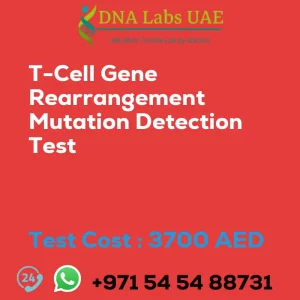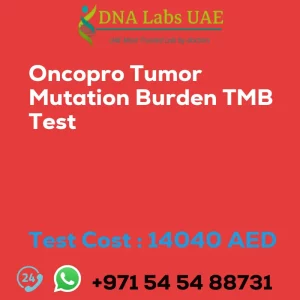LUNG CANCER MUTATION PANEL Test
Test Name: LUNG CANCER MUTATION PANEL Test
Components: ALK-1, EGFR
Price: 3740.0 AED
Sample Condition: Submit formalin fixed paraffin embedded tissue block OR three 4 micron sections on Poly-L-Lysine coated slides. Ship at room temperature. Duly filled Genomics Clinical information requisition form (Form 20) is mandatory.
Report Delivery: Sample Tue by 11 am; Report Mon
Method: FISH, PCR
Test Type: Cancer
Doctor: Oncologist
Test Department: Pre Test Information
Pre Test Information: Duly filled Genomics Clinical information requisition form (Form 20) is mandatory.
What is the LUNG CANCER MUTATION PANEL Test?
The LUNG CANCER MUTATION PANEL test is a genetic test that analyzes specific genes associated with lung cancer. This test helps identify mutations or alterations in these genes that may contribute to the development or progression of lung cancer. The test is typically performed on a tissue sample obtained through a biopsy or surgical procedure.
How is the Test Performed?
The sample, which can be a formalin fixed paraffin embedded tissue block or three 4 micron sections on Poly-L-Lysine coated slides, is shipped at room temperature to the laboratory. The sample is then analyzed using advanced sequencing techniques to identify mutations in the genes included in the panel.
Why is the LUNG CANCER MUTATION PANEL Test Important?
The LUNG CANCER MUTATION PANEL test can provide valuable information for personalized treatment decisions. It helps identify specific genetic alterations that may make the cancer more susceptible to certain targeted therapies. This can help guide treatment decisions and improve patient outcomes.
Genes Included in the Test
Some of the genes commonly included in the LUNG CANCER MUTATION PANEL test are EGFR, KRAS, ALK, ROS1, and BRAF. Mutations in these genes have been found to be common in lung cancer and can influence treatment options.
Comprehensive Diagnosis and Treatment
It is important to note that the LUNG CANCER MUTATION PANEL test is just one tool used in the diagnosis and treatment of lung cancer. It is typically used in conjunction with other diagnostic tests, imaging studies, and clinical assessments to provide a comprehensive understanding of the cancer and guide treatment decisions.
| Test Name | LUNG CANCER MUTATION PANEL Test |
|---|---|
| Components | *ALK-1*EGFR |
| Price | 3740.0 AED |
| Sample Condition | Submit formalin fixed paraffin embedded tissue block OR three 4 micron sections on Poly-L-Lysine coated slides. Ship at room temperature. Duly filled Genomics Clinical information requisition form (Form 20) is mandatory. |
| Report Delivery | Sample Tue by 11 am;Report Mon |
| Method | FISH, PCR |
| Test type | Cancer |
| Doctor | Oncologist |
| Test Department: | |
| Pre Test Information | Duly filled Genomics Clinical information requisition form (Form 20) is mandatory. |
| Test Details |
The LUNG CANCER MUTATION PANEL test is a genetic test that analyzes specific genes associated with lung cancer. This test helps identify mutations or alterations in these genes that may contribute to the development or progression of lung cancer. The test is typically performed on a tissue sample obtained through a biopsy or surgical procedure. The sample is then analyzed in a laboratory using advanced sequencing techniques to identify mutations in the genes included in the panel. The LUNG CANCER MUTATION PANEL test can provide valuable information for personalized treatment decisions. It helps identify specific genetic alterations that may make the cancer more susceptible to certain targeted therapies. This can help guide treatment decisions and improve patient outcomes. Some of the genes commonly included in the LUNG CANCER MUTATION PANEL test are EGFR, KRAS, ALK, ROS1, and BRAF. Mutations in these genes have been found to be common in lung cancer and can influence treatment options. It is important to note that the LUNG CANCER MUTATION PANEL test is just one tool used in the diagnosis and treatment of lung cancer. It is typically used in conjunction with other diagnostic tests, imaging studies, and clinical assessments to provide a comprehensive understanding of the cancer and guide treatment decisions. |








